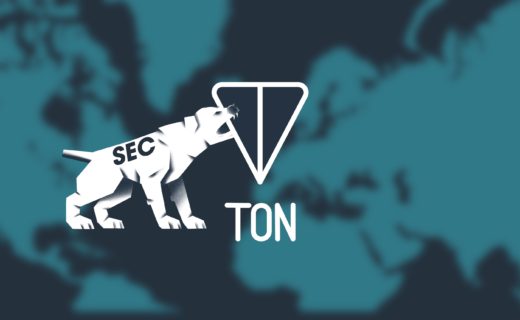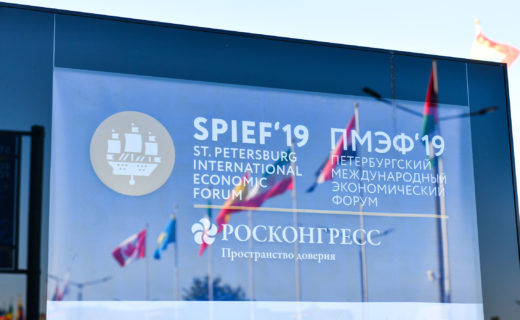In 2004 Malta has created a legal framework for iGaming industry and now opened its doors for blockchain projects. In case of iGaming, the industry was challenged by sharp growth of gambling addiction and the authorities have tightened the screws on industry players. Let’s see how the story ends with a crypto startups.
Inspired by iGaming
In 2004, Malta became the first European Union country to create a legislative framework for iGaming companies operations. The island has established itself as a global center for the industry, which has shown continuous growth over the past fifteen years.
According to the Malta National Statistics Office, the share of the online games sector in the country’s economy was 11.3% in 2017, which is 1.1 billion euros. This is not much in absolute terms, but significant for a small island state.
According to EY consulting company, almost 70% of investors surveyed consider the online gaming industry to be the main driver of growth for the Maltese economy over the next five years. Everyone believes that the established legal framework will contribute to the innovative development of the economy of Malta.
The rapid development of online games and a legal opportunity to operate in all EU countries with Maltese license led to an extraordinary growth of gambling addiction which can be expressed in a passion for gambling, even a loss of control. Besides, several cases of money laundering through online casinos were taken place. To control operation and growth of such a “gray” industry on its territory, the European Union had to impose sanctions on Malta and require Maltese companies to obtain licenses individually for each EU country.
The success of the gambling case for the country’s economy has inspired the Maltese legislators. They began to develop legislation to conquer a new industry of blockchain projects.
Get to blockchain
According to the EY study, foreign investors who already have interest in Malta show significant interest in the new industry. 5% of respondents evaluate it as a driver of economic growth for Malta, and EY forecasts that this figure in 3 years will be 31% of respondents.
On November 1, 2018 three laws that regulate the activities of innovative start‐ups and the status of digital financial assets came into force. Maltese government takes efforts to organize transparent environment for blockchain projects to work and raise capital in a well‐defined legal field. During The Malta Blockchain Summit 2018, which was held to popularize innovations, participants had an opportunity to interact with key official in this field such as Malta’s Prime Minister Joseph Muscat and Secretary of the Maltese Parliament for Finance, Digital Economy and Innovation Silvio Schembri.
The content of the laws that Malta adopted to make life easier for crypto projects is presented below.
The Malta Digital Innovation Authority Act (MDIA Act)
The law provides an establishment of a new state authority — MDIA. It’s aim is to regulate the use of innovative technologies and promote the state’s interest in the blockchain environment. It covers in detail the principles of governance, functions, features of financing and the conditions of innovative projects authorization in Malta.
In particular, the MDIA functions include:
- Advising the government in the field of innovation.
- Creating quality and security standards for DLT projects operations.
- Direct registration and licensing of new products and activities, as well as the establishment of rules and requirements that will regulate these procedures.
- Creating a register of innovative projects licensed by MDIA.
- Tracking and checking of blockchain projects operations for compliance with standards and legality.
- Imposing administrative fines, terms of license suspension and revocation.
- Creating an administrative tribunal in which companies can appeal against MDIA decisions. For example, revocation of a license for the right to work in the country.
- Support for DLT educational programs.
MDIA will be responsible for licensing projects are going to launch STO, as well as regulating tokens circulation. The empowerment of the Authority can be considered reasonable, taken into account a risk level of investments in blockchain startups.
The other side of the coin is the surveillance power of tMDIA. It can require any data from the company including financial documents or smart‐contract code, except for commercially sensitive information and virtual wallet keys. MDIA has also obtained a power to come at any time with a search and seizure of necessary documents.
The law also fixes the maximum amount of administrative fines for violation of licensing conditions. It is up to 350’000 euros for one violation and up to 12’000 euros for each day of work with violations and non‐compliance with established standards. Such fines can become unaffordable for startups at the stage of ICO launch and MVP unavailability. Moreover, a possible abuse of authority by MDIA is able to freeze the projects’ operations for months.
Innovative Technology Agreements and Services Act (the ITAS Act)
The document sets out the requirements for the registration of innovative technology agreements (ITA). The law also regulates the procedure for certifying providers of innovative technological services (ITS providers). The difference is that by the first the legislators mean the blockchain project itself, and the second are companies providing services for DLT projects in Malta, including audit and technical administration.
One of the main requirements is the audit of the technical component of the project by an independent system auditor. He analyzes the blockchain architecture of the project for compliance with the standards specified in the law. In addition, the law requires a permanent technical administrator of a project. He constantly monitors compliance with standards for DLT projects, and can also intervene in embedded technological functions of the project in case of law violation.
Non‐residents of Malta who have applied for registration of their blockchain start‐up should use the services of an Agent who must be a resident of Malta. It looks like a corny attempt to employ the islanders, but whoever has a power dictates the rules.
Validity period of certification:
- 3 years for the technical administrator and the blockchain itself,
- 2 years for an auditor.
The law provides that the service providers act as trusted subjects in relation to the information delivered to them, and are also bound by the provisions of the Professional Secrecy Act. But the issue is how to keep commercially sensitive and confidential information, if at any time the regulator can withdraw documents and other sources. So the regulator and startups should clearly define what information can be considered as commercially sensitive and untouchable.
Virtual Financial Assets Act (VFA Act)
This document regulates the sphere of the initial offer of digital financial assets such as ICO or STO. According to the Act, DLT assets are divided into four groups:
- Electronic money
- Virtual financial asset
- Financial instruments
- Virtual tokens
The latter one do not need to be registered, because, according to the legislators, virtual tokens are used only for access to the internal operations of the platform and do not have any utility, value or application outside a platform. Virtual financial assets assets need to be registered, since they carry risks for the invested capital and transactions with them can become taxable, by analogy with securities. For this purpose, the Malta Stock Exchange together with Binance will create a new platform for operations with security tokens.
The Act regulates the following aspects of ICO and STO:
- The licensing process for virtual financial assets which is required for capital raising through ICO and STO.
- The mandatory whitepaper registration process in a competent state authority (MDIA).
- Requests the project to disclose financial data.
- Sets the requirements for the content of advertising campaigns and information on the project website (accuracy and verifiability in WP).
- Responsibility for the loss of the investor as a result of false, inaccurate or misleading data provision in the whitepaper, promotional materials or on the website.
- Establishes a ban on insider trading of digital assets.
One of the key aspects of the law is the establishment of Virtual Financial Assets agents or VFA agent. Agents will act as a liaison between the blockchain project and the authorities on all issues arising in connection with the paperwork or trading of financial assets.
Agents can become both individual lawyers and auditors, and organizations that are similar in terms of competence after approval by the Malta Financial Services (MFSA). To do this, candidates must pass a special test to prove their expertise. The test is developed by MFSA and presented on the official website.
Everything is profitable of Malta
New legislation creates a system of obligatory verification and certification of blockchain startups. Investors gain confidence in the quality of certified projects and protect investments from fraud.
Malta can count on direct foreign investment inflow as well as tax revenues from blockchain projects and operations with digital assets. Besides, the island’s budget will be replenished by taxes from numerous intermediary firms, which are VFA agents, technical administrators and system auditors. Moreover, the government has created a system of administrative fines that would be imposed on projects that violate the law. Thus, the government has received several new sources of income and Maltese economy gains capital for further development.
Why Malta will not be a panacea for blockchain projects
Receiving a certificate, projects confirm their viability and begin to work in the legal field. However there are three reasons that the jurisdiction of Malta will lose to its competitors like Estonia and Singapore.
Reason 1. The bureaucratic apparatus in the form of agents, auditors and technical administrators. All intermediary companies must also obtain a license to operate. Now all these intermediate links still do not have licenses that increase significantly the time spent by companies on their registration. It is expected that the first licenses will be received by startups only in the second half of 2019. Taken the trend of the industry to refuse to raise funds through ICO in favor of venture capital investments into account, it is not rational for many teams to go through this expensive and long‐term procedure.
Reason 2. Blockchain projects incur extra costs for administrators, agents and other intermediates services that comply the requirements of the regulator. All this will be an extra burden for the projects economy. Additionally, if the project does not have MVP, it does not have a source to cover the costs of registration and maintenance of agents.
Reason 3. Prejudice of the European Union can be considered as the main risk. The development of blockchain industry in Malta can pass through the same path as the gambling industry. Firstly, the government took a package of legal incentives and then they screwed the nuts when the largest players have registered on the island.
The created legal field can cause massive registration of crypto projects on the island. Some of them may turn out to be fraudulent or untenable and the Government of Malta may be forced to tighten regulation of the industry and intervene in its development on the island under pressure from the European Union.
Maltese legislation has just been created. Soon we will see the advantages and disadvantages of the new laws in practice.



No Comment